By Holland Cooke
Consultant
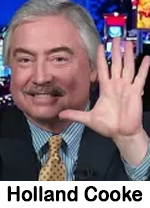 By 2009, I had been making my living consulting and coaching talk hosts for 14 years, but I myself had not yet hosted a talk show. Like Rush Limbaugh before he went-talk, I had lots of on-air time under my belt as a music DJ. And that same skill set contributes to talk radio success: “Play the hits” (topics) and convert Cume to AQH (technique).
By 2009, I had been making my living consulting and coaching talk hosts for 14 years, but I myself had not yet hosted a talk show. Like Rush Limbaugh before he went-talk, I had lots of on-air time under my belt as a music DJ. And that same skill set contributes to talk radio success: “Play the hits” (topics) and convert Cume to AQH (technique).
This month and next, when so many take vacation time, guest-hosts are often local somebodies who are not career broadcasters and don’t share our second-nature performance routines. For their benefit, these tips, based on my experience on both sides of the mic:
My hosting debut was “The Jim Bohannon Show.” And Jimbo told me I was only the third person to ever guest-host, after Joan Rivers and Chris Matthews jump-started their broadcast careers there. But, to these listeners, who-the-heck was I? Lacking the back-story of an A-list comedian or former presidential speechwriter, I simply told the truth, saying, “I’m Jim’s pal, Holland Cooke” as I quickly invited callers into the hour’s topic or teed up the guest. I had promised myself I would avoid “The Sitting-In For Rush Syndrome:” unscripted monologue about myself and blah-blah-blah until the first break. TALKERS publisher Michael Harrison – himself a well-traveled guest host – recommends nonchalance and warns against, “It’s such an honor to be here!”
So, if you’re filling-in, that’s Tip #1: Cut to the chase. Don’t devalue the show by committing lots of time explaining that the familiar host is away and who you are. Tee-up what the show is about this hour… why it matters to those listening… how they will benefit from not wandering-off when they hear a stranger… and how to join-in.
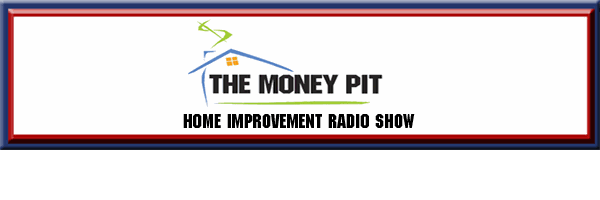
Demonstrating this technique when “FOX Across America” host Jimmy Failla is off: my long-suffering client Paul Gleiser. His day job is owning KTBB, Tyler-Longview, Texas; and his side hustle is guest-hosting Jimmy’s show, which he’s done a half-dozen times this month. Understanding Tip #2: You’re a guest in someone’s home, Paul asked Jimmy for advice. Always in-character, Failla quipped “Drive it like you stole it!” So Gleiser is all about call count, teeing-up TWO tempting propositions, one topical, the other a softer “Bonus Question.” As I write this, he’s asking, “Which Democrat do we [Republicans] want to run-against in 2024?” and – as new employment numbers are announced – “The WORST job you ever had?” Callers are telling stories.
That’s Tip #3: Invite callers. Admittedly, my debut was a snap, with Jimbo’s show on 500-plus stations. But later, when then-PD Bill White had me do three nights on WBT, Charlotte, he texted me after my first hour to say that I had taken more calls that hour than other hosts get-around-to in a week. In a recession, I asked if callers were “Seeing ‘green shoots’ of recovery?” and “The best car you ever owned?” They all told stories about both. “DON’T beg for callers,” Harrison says. And bring more than just your voice, i.e., guests and sound bites from news feeds. Gleiser: “Prep like the phone is broken.”
Tip #4: Invite participation multiple ways. Many listeners would rather text than call. Do so and you’ll sound accessible and at-the-speed-of-life. And follow @smerconish to see how (effectively) he polls listeners via social media.
Tip #5: “Know what the show was about yesterday,” Gleiser urges, because political topics tend to change little day-to-day. Avoid this trap: The guest host’s outspoken narrative is a point that’s already been talked-to-death BUT this is HIS shot on a big show, so this is HIS turn to me-too the unison. Better approach: Come up with a new wrinkle; like Paul’s aforementioned “Who [Democrat] do we [Republicans] have the best chance of beating in 2024?”
Tip #6: Empower callers, by asking their FEELINGS, rather than asking for facts or their expertise. They’re not experts. Instead, use The Magic Words (“you” and “your”): “Should you be fined for installing or replacing your gas stove?” Or empower them with access to a guest they can Q+A about matters that matter to their lives. When the fill-in host is “a somebody” – the mayor or an athlete or an expert – the host him/herself is an opportune topic. As we say when inviting calls to hosts who broker weekend airtime: “The lawyer is in, the meter is off.”
Tip #7: Establish a relationship with the producer “BEFORE the show” Gleiser advises: “Don’t just show up.” Ascertain who-does-what. In some cases, the producer will have booked guests and may suggest or assign call-in topics. Or – in Jimmy Failla speak – you’re driving, if the producer is simply call-screening and running-the-board (which you should NOT attempt if you’re not an experienced broadcaster or if you are unfamiliar with this particular station’s set-up).
Tip #8: Keep re-setting – succinctly, “matter-of-factly” as Michael Harrison puts it — introducing yourself and your guest-or-topic — when you’re going-into and coming-out-of breaks, and at the beginning of each hour. Why: Listeners are constantly tuning-in.
Tip #9: Always and only announce the call-in number immediately after you tell them WHY to call. Most common mistake I hear, even from experienced hosts: They give-out the phone number at the very beginning of the show or hour or segment, then (eventually) they tell you why to call, possibly minutes later (an eternity in live radio). So, they’re haunted by those dreaded “regulars” who already have the number memorized. Make announcing the number the punch line, whether you’re asking opinions on topic du jour or offering access to a guest they’ll want to interact with. ‘Seems like a little thing, but this can make a big difference in how popular you make the station sound.
Tip #10: “Be a convenience to the station,” not high maintenance. Harrison: “If you’re a diva they won’t ask you back.”
Tip #11: Afterward, give it a listen. If you do this for a living, wait a week, so you hear your work with fresh ears. Not a broadcaster? Was there a segment worth sharing on your blog or via social media? Did you or a guest explain something real useful? On Twitter, link to an audio clip of “Pet Pro Dr. Donna Johnson’s tips for helping your critters keep their cool during a long, hot summer,” so you’re useful to those who weren’t listening live. For LOTS of clicks and shares, include pictures of cuddly kittens and puppies.
Tip #12: If you are a career broadcaster, “always be available (and prepared) on short notice,” Michael Harrison recommends. 😉
Holland Cooke (HollandCooke.com) is a consultant working at the intersection of broadcasting and the Internet. He is the author of “Spot-On: Commercial Copy Points That Earned The Benjamins,” a FREE download; and the E-book and FREE on-air radio features “Inflation Hacks: Save Those Benjamins;“and Multiply Your Podcast Subscribers, Without Buying Clicks,” available from Talkers books. Follow HC on Twitter @HollandCooke
Share this with your network
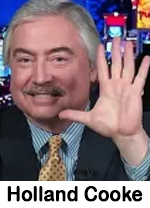 The stations I work with make big money with live endorsement spots delivered by familiar local on-air personalities. Remember them? With most AM/FM broadcast hours now robotic or non-local, your relationship with the listener is precious and can be leveraged… carefully.
The stations I work with make big money with live endorsement spots delivered by familiar local on-air personalities. Remember them? With most AM/FM broadcast hours now robotic or non-local, your relationship with the listener is precious and can be leveraged… carefully.


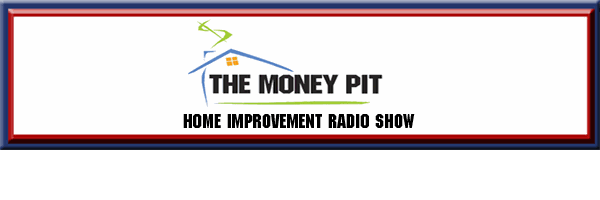
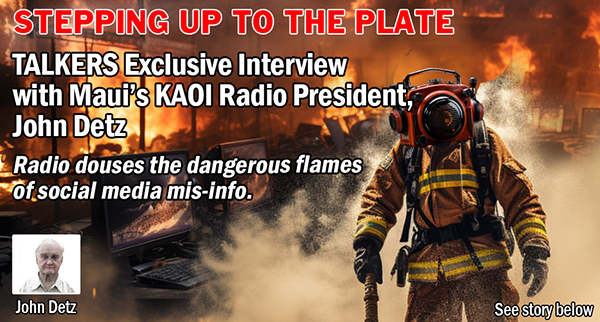
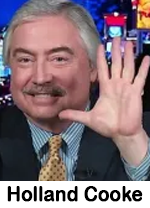 As this week’s first Republican presidential debate looms, my FOX News Radio-affiliated client stations are irked. Thanks to their network, they’re carrying it live, and locally sponsored, and promo-ing it aplenty. A couple of my clients will travel to Milwaukee to wrap pre- and post-game color around the play-by-play. So, yuh, they’re irked.
As this week’s first Republican presidential debate looms, my FOX News Radio-affiliated client stations are irked. Thanks to their network, they’re carrying it live, and locally sponsored, and promo-ing it aplenty. A couple of my clients will travel to Milwaukee to wrap pre- and post-game color around the play-by-play. So, yuh, they’re irked.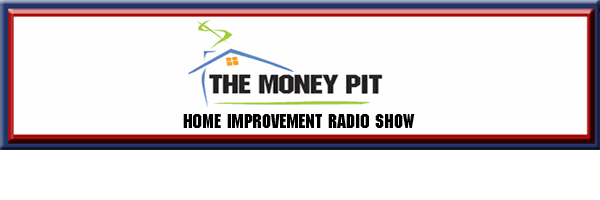
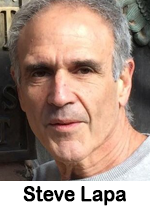 Bulletin: “Linear TV” is no longer the winner.
Bulletin: “Linear TV” is no longer the winner.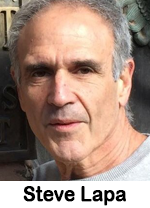 Radio station personnel could be facing the worst environment – ever!
Radio station personnel could be facing the worst environment – ever!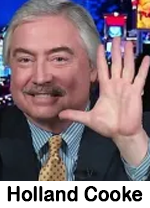 Those are the two consultant buzzwords that hosts I coach are hearing in their sleep. And a couple more “E” words: Empathy and Empower.
Those are the two consultant buzzwords that hosts I coach are hearing in their sleep. And a couple more “E” words: Empathy and Empower.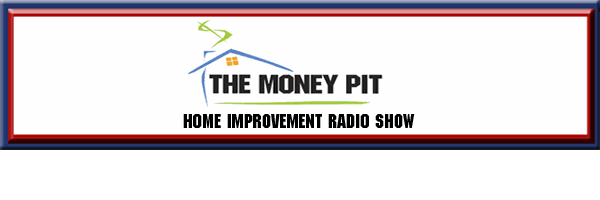

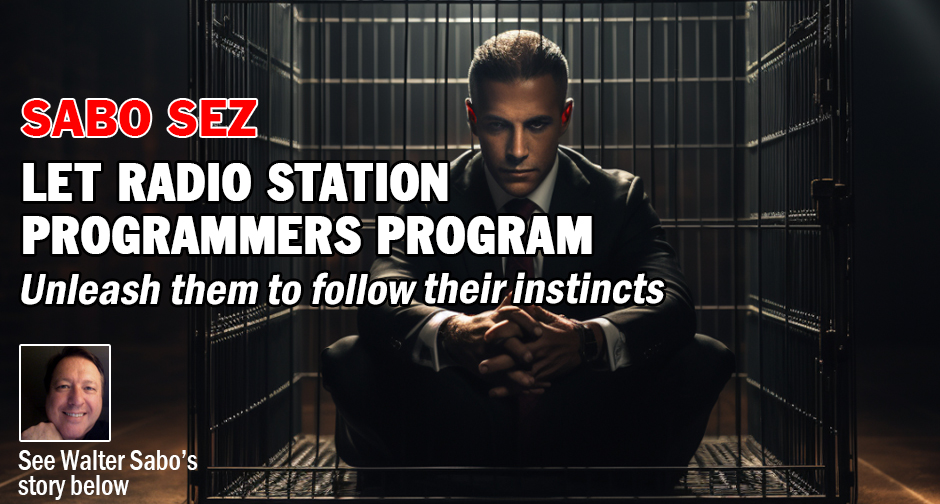
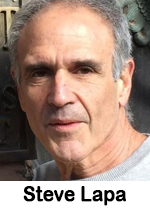 What happens when the world-wide leader is for sale? When they stopped spanning the globe 25 years ago, I thought the budget cut would help the leader. I could still hear the great Jim McKay describing the agony as Vinko Bogataj rolled down that ski slope in utter defeat. There were so many different images of the thrill of victory, but for most of the 37 seasons of “Wide World of Sports,” the agony of defeat was forever connected to that helpless Yugoslavian skier.
What happens when the world-wide leader is for sale? When they stopped spanning the globe 25 years ago, I thought the budget cut would help the leader. I could still hear the great Jim McKay describing the agony as Vinko Bogataj rolled down that ski slope in utter defeat. There were so many different images of the thrill of victory, but for most of the 37 seasons of “Wide World of Sports,” the agony of defeat was forever connected to that helpless Yugoslavian skier. She was the agent I enjoyed working with most over three decades I was an active real estate investor. We remain good friends, and her technique informs the work I do coaching agents – and attorneys and financial advisors and other professionals – who host ask-the-expert radio shows.
She was the agent I enjoyed working with most over three decades I was an active real estate investor. We remain good friends, and her technique informs the work I do coaching agents – and attorneys and financial advisors and other professionals – who host ask-the-expert radio shows.
 HALF of all radio stations in the United States lose money – at least they did back in 1991. The NAB used to put out an annual report revealing how many radio stations were profitable. Usually half the stations in America lost money. Since consolidation, the NAB stopped putting out that report. It is reasonable to believe that far, far fewer stations lose money today. Shared costs, real estate, technical economies due to digital equipment versus analog all indicate that there must be fewer money-losing properties.
HALF of all radio stations in the United States lose money – at least they did back in 1991. The NAB used to put out an annual report revealing how many radio stations were profitable. Usually half the stations in America lost money. Since consolidation, the NAB stopped putting out that report. It is reasonable to believe that far, far fewer stations lose money today. Shared costs, real estate, technical economies due to digital equipment versus analog all indicate that there must be fewer money-losing properties. No, this isn’t about college football or New Year’s Eve. Wait, maybe it is.
No, this isn’t about college football or New Year’s Eve. Wait, maybe it is. Fellow longtime, long-ago DJs: You know what I’m talking about. And it’s a life sentence, eh?
Fellow longtime, long-ago DJs: You know what I’m talking about. And it’s a life sentence, eh?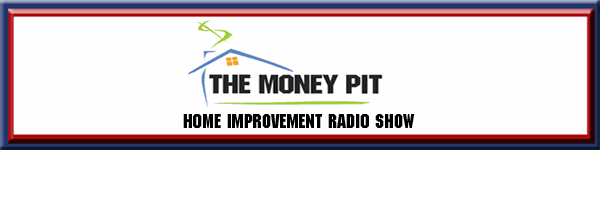
 Amazing fact: In ancient times, from 1962-1972, the highest-paid on-air talent in New York City was “an overnight guy.” He was paid salary plus sales response. I’m talking about Long John Nebel on WOR, WNBC, then WMCA. Long John’s live reads moved product because his audience was captive. One-to-one his listeners were attached to their radios in the truck cab, night watchman’s building lobby, parents pacing with their babies, students cramming. His background was not in radio; he was a skilled auctioneer. Obviously, the same listeners exist today – and are anxious for someone to talk to them. Check out this old clip of Nebel in action:
Amazing fact: In ancient times, from 1962-1972, the highest-paid on-air talent in New York City was “an overnight guy.” He was paid salary plus sales response. I’m talking about Long John Nebel on WOR, WNBC, then WMCA. Long John’s live reads moved product because his audience was captive. One-to-one his listeners were attached to their radios in the truck cab, night watchman’s building lobby, parents pacing with their babies, students cramming. His background was not in radio; he was a skilled auctioneer. Obviously, the same listeners exist today – and are anxious for someone to talk to them. Check out this old clip of Nebel in action:  When was the last time you went shopping for a quality living room rug? Not an oriental, because that is just too easy. We’re talking high quality living room rug that will blend in and stand the test of time… and the dog. Next to fighting with a credit card company, it’s the worst shopping experience ever.
When was the last time you went shopping for a quality living room rug? Not an oriental, because that is just too easy. We’re talking high quality living room rug that will blend in and stand the test of time… and the dog. Next to fighting with a credit card company, it’s the worst shopping experience ever. THE Best Bit I’ve Heard This Month was by Gene Valicenti, morning host, WPRO-AM/WEAN-FM, Providence.
THE Best Bit I’ve Heard This Month was by Gene Valicenti, morning host, WPRO-AM/WEAN-FM, Providence.
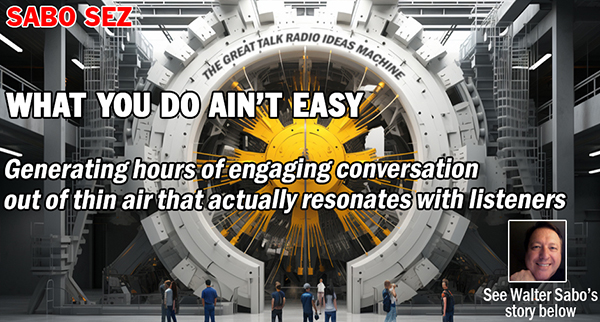
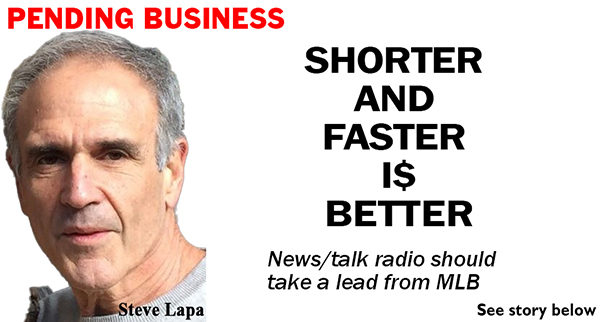
 By 2009, I had been making my living consulting and coaching talk hosts for 14 years, but I myself had not yet hosted a talk show. Like Rush Limbaugh before he went-talk, I had lots of on-air time under my belt as a music DJ. And that same skill set contributes to talk radio success: “Play the hits” (topics) and convert Cume to AQH (technique).
By 2009, I had been making my living consulting and coaching talk hosts for 14 years, but I myself had not yet hosted a talk show. Like Rush Limbaugh before he went-talk, I had lots of on-air time under my belt as a music DJ. And that same skill set contributes to talk radio success: “Play the hits” (topics) and convert Cume to AQH (technique).


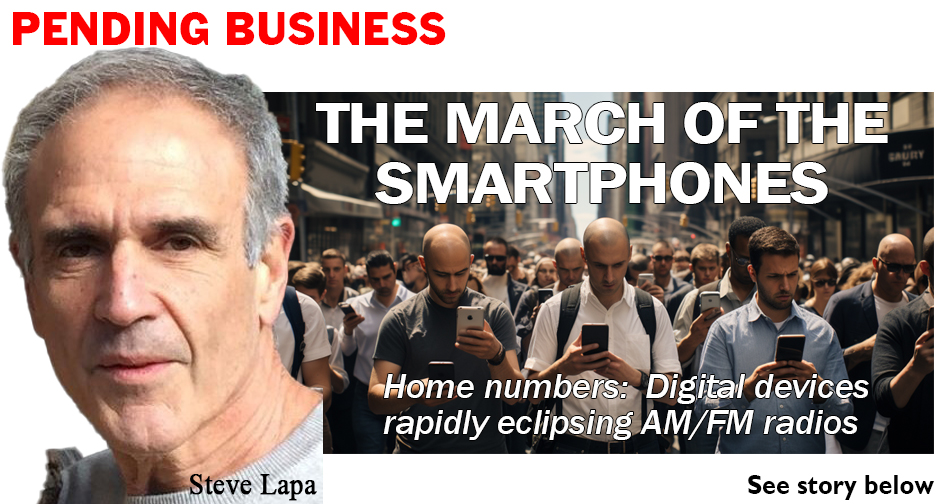
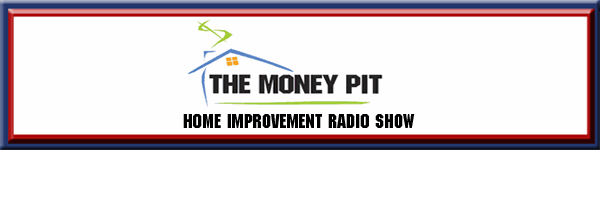
 Congratulations! You’ve made to the halfway point this year.
Congratulations! You’ve made to the halfway point this year.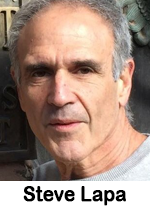 Simple question, tricky answer. Unless you are organized.
Simple question, tricky answer. Unless you are organized.